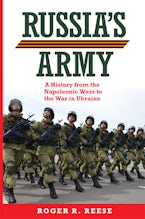Peasant Wars of the Twentieth Century
by Eric R. Wolf
Published by: University of Oklahoma Press
Imprint: University of Oklahoma Press
352 Pages | 6 x 8 | 6 maps
$24.95
"Peasant Wars of the Twentieth Century provides a good short course in the major popular revolutions of our century--in Russia, Mexico, China, Algeria, Cuba, and Viet Nam--not from the perspective of governments or parties or leaders, but from the perspective of the peasant peoples whose lives and ways of living were destroyed by the depredations of the imperial powers, including American imperial power."–New York Times Book
"Eric Wolf's study of the six great peasant-based revolutions of the century demonstrates a mastery of his field and the methods required to negotiate it that evokes respect and admiration. In six crisp essays, and a brilliant conclusion, he extends our understanding of the nature of peasant reactions to social change appreciably by his skill in isolating and analyzing those factors, which, by a magnification of the anthropologist's techniques, can be shown to be crucial in linking local grievances and protest to larger movements of political transformation."—American Political Science Review
“An intellectual tour de force."—Comparative Politics
"[Peasant Wars of the Twentieth Century] provides a good short course in the major popular revolutions of our century—in Russia, Mexico, China, Algeria, Cuba, and Viet Nam—not from the perspective of governments or parties or leaders, but from the perspective of the peasant peoples whose lives and ways of living were destroyed by the depredations of the imperial powers, including American imperial power."—New York Times Book Review
"Eric Wolf's study of the six great peasant-based revolutions of the century demonstrates a mastery of his field and the methods required to negotiate it that evokes respect and admiration. In six crisp essays, and a brilliant conclusion, he extends our understanding of the nature of peasant reactions to social change appreciably by his skill in isolating and analyzing those factors, which, by a magnification of the anthropologist's techniques, can be shown to be crucial in linking local grievances and protest to larger movements of political transformation."—American Political Science Review
“An intellectual tour de force."—Comparative Politics












